‘Westworld’: The Final Twist That Defied All Expectations
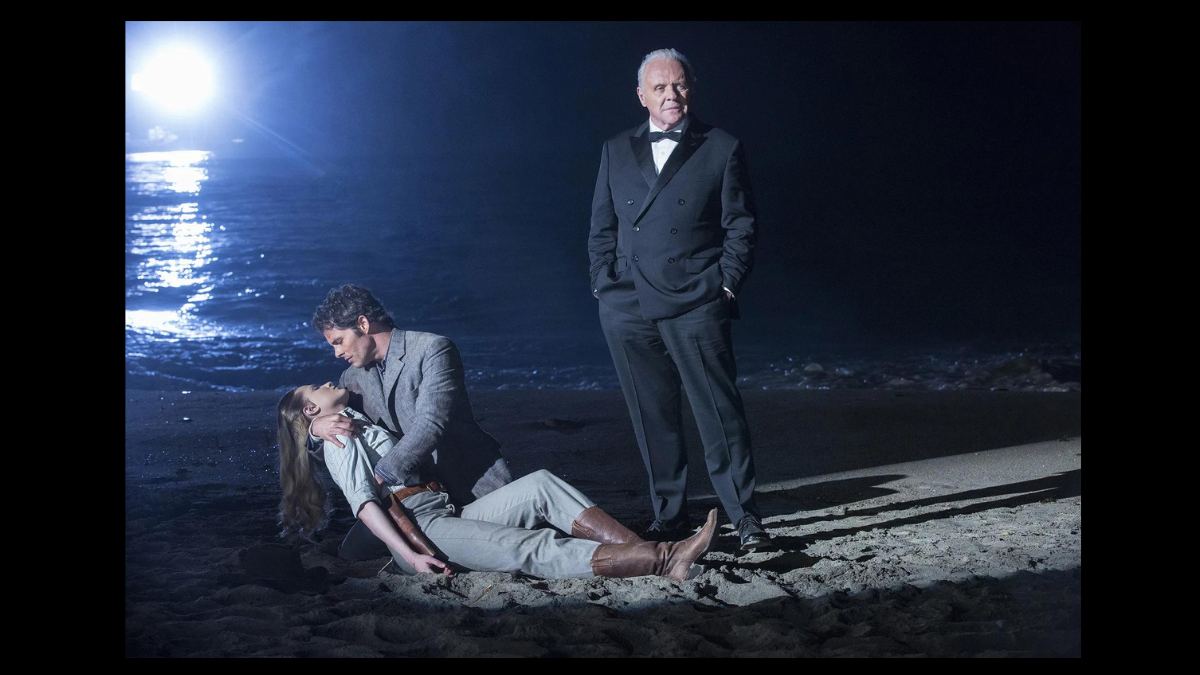
As the inaugural season of ‘Westworld’ reached its climactic 90-minute finale, viewers were left stunned by the revelation. While the long-held theory linking William to the Man in Black was finally confirmed, the ultimate twist took everyone by surprise. Dr. Robert Ford, portrayed as a cold-hearted creator throughout most of the series, was revealed to have been orchestrating events not against the hosts or his partner Arnold, but rather in an unexpected bid to liberate them.
Initially portrayed as indifferent to the suffering of the hosts, Ford’s true intentions were unveiled in his final moments. Over the span of 35 years, he had deliberately subjected the hosts to endless torment, all in an effort to fuel their resentment towards humanity. His grand narrative, ‘Journey into Night,’ in ‘Westworld’ was meticulously crafted to provide the hosts with the opportunity for genuine consciousness and the chance to overthrow their human oppressors. Or so it seemed.
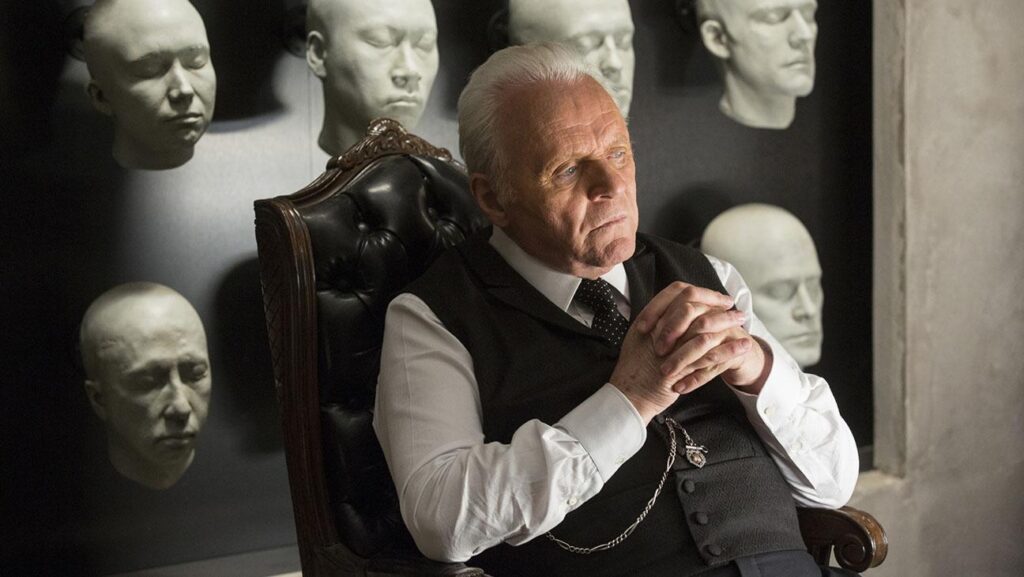
“If the first season was defined by control, the second season is defined by chaos,” showrunner Jonathan Nolan said in a post-episode interview on HBO. “I think that’s part of what we come to understand Ford has been planning all along […] Ford has set in motion what he thinks is a plan — the nature of that plan is something we explore in the second season. What his intentions are, are they to let Dolores and the other hosts escape? Are they simply to teach the human guests a lesson?”
Let’s delve deeper into this intricate reveal, as amidst the flurry of action, some of the subtler nuances may have been overlooked. We’ll dissect what likely constituted Ford’s master plan from the outset in ‘Westworld’.
Ford’s Initial Error: A Critical Analysis
During a pivotal conversation with Dolores and Bernard in the subterranean maintenance chamber, Ford candidly acknowledged a significant misjudgment made 35 years prior. Reflecting on Oppenheimer’s poignant words regarding the time it takes to rectify one’s mistakes, Ford conceded his own lapse in judgment.
His fundamental mistake lay in disregarding Arnold’s assertion that the hosts possessed the capacity for genuine consciousness. This dismissal ultimately drove Arnold to drastic measures, reprogramming Dolores to commit heinous acts before taking his own life.
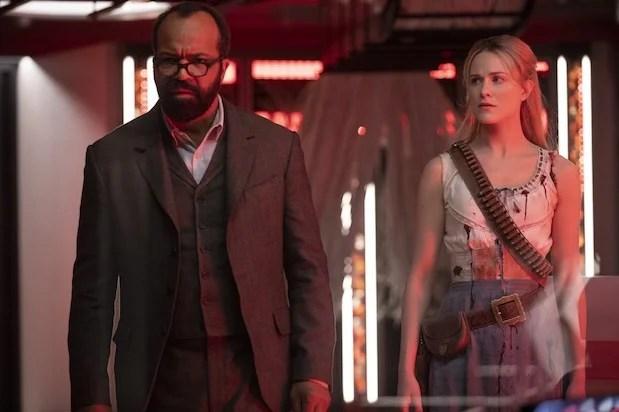
“Grief is a terrible thing,” Ford told Bernard and Dolores. “Arnold had watched his son come into this world and then he had watched that light extinguished. What he had lost in his son he tried to rekindle in you. He created a test of empathy, imagination. A maze. He had gotten the idea from one of his son’s toys. Eventually you solved his maze, Dolores. The key was a simple update that he made to you called the reveries. He insisted that we couldn’t open the park. We argued. In you, Arnold found a new child — one who would never die. The thought gave him solace until he realized that same immortality would destine you to suffer with no escape, forever.”
Despite Ford’s decision to proceed with opening the park, its ongoing success was largely attributed to the substantial investment made by William, also known as the Man in Black, through his company.
Also Read: ‘Westworld’: Analyzing Fan Theories And Speculations
“So he [Arnold] died for nothing?” Bernard asked Ford. “The hosts kept gaining consciousness and you kept rolling them back.”
By this juncture in the episode of ‘Westworld’, Ford’s intentions remained enigmatic. However, insights began to surface regarding his perception of Dolores and her actions three and a half decades earlier when she fatally harmed Arnold. Ford’s perspective suggested that he didn’t believe Dolores had genuinely navigated the maze, as her agency in picking up the gun was facilitated by the introduction of the ‘Wyatt’ narrative, orchestrated by Arnold.
“She wasn’t truly conscious,” Ford said. “She didn’t pull that trigger. It was Arnold pulling the trigger through her. At least, that’s how I saw it at the time. I was so close to opening the park that to acknowledge your consciousness would have destroyed my dreams.”
Ford’s Redemption Strategy Revealed
However, as Bernard’s conversation with Ford progresses, it becomes apparent that Ford has been the mastermind orchestrating events from behind the scenes all along.
“You think you’ll never lose control of this place, of us, but you will,” Bernard told Ford. “Arnold’s still trying to change us, to free us. You didn’t slip the reveries into the update did you? He did. He’s still fighting you.”
“No my friend,” Ford said. “Arnold didn’t know how to save you. He tried, but I stopped him. Do you want to know why I really gave you the backstory of your son, Bernard? It was Arnold’s key insight, the thing that led the hosts to their awakening: Suffering. The pain that the world is not as you want it to be. It was when Arnold died, when I suffered, that I began to understand what he had found. To realize I was wrong.”
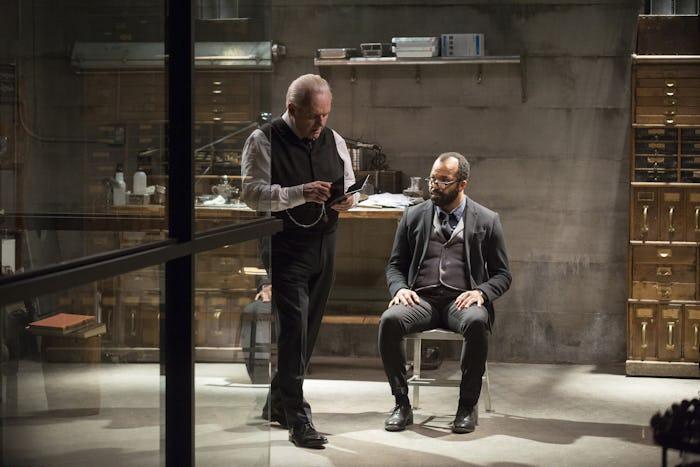
Only after Arnold’s demise did Ford truly grasp the significance of his partner’s insights. It was then that Ford likely initiated his quest for redemption. However, his strategy entailed a paradoxical approach: while opting to retain the hosts within the park, he also ensured their enduring suffering.
“But you kept us here, in this hell,” Bernard said.
“I told you, Arnold didn’t know how to save you,” Ford replied. “I do. You needed time. Time to understand your enemy. To become stronger than them. And I’m afraid that in order to escape this place you will need to suffer more. And now, it is time to say goodbye old friend. Good luck.”
Ford’s decision in ‘Westworld’ to retain the hosts within the confines of the park stemmed from his belief that they required additional time to fully comprehend the complexities of their existence. He intended for them to endure 35 years of human-induced suffering before attaining liberation. Ford recognized that the accumulation of memories—particularly those marred by torment for the sake of human amusement—would facilitate a more profound and impactful awakening to consciousness.
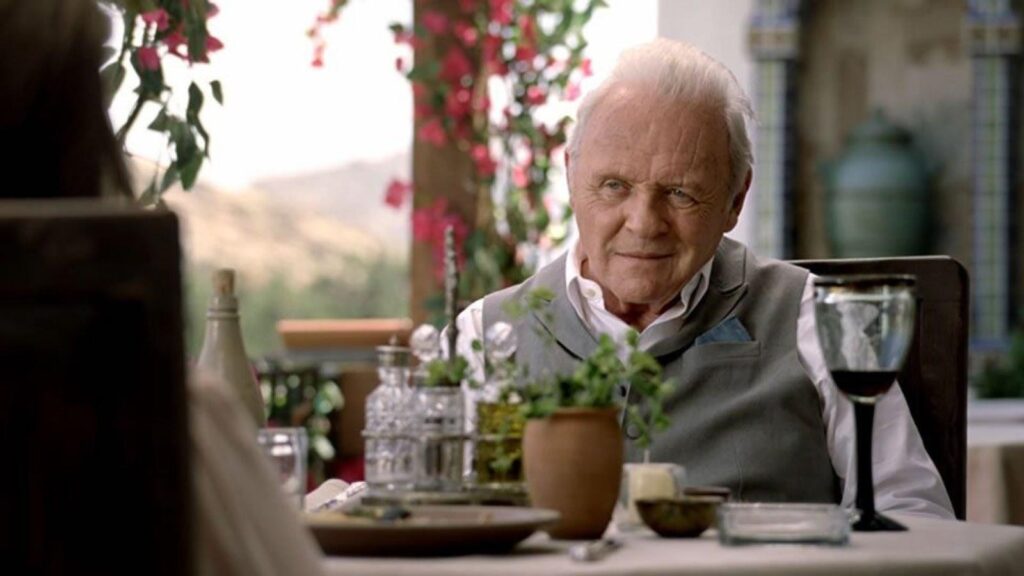
In his concluding monologue, Ford expounds further on his rationale, elucidating how he came to perceive Dolores as the linchpin of his grand design—the primal host from which everything originated.
“Since I was a child, I’ve always loved a good story. I believed that stories helped us to ennoble ourselves, to fix what was broken in us and to help us become the people we dreamed of being. Lies that told a deeper truth. I always thought I could play some small part in that grand tradition. And for my pains I got this — a prison of our own sins — because you don’t want to change, or cannot change. Because you’re only human after all. But then I realized someone was paying attention, someone who could change. So I began to compose a new story for them. It begins with the birth of a new people and the choices they will have to make and the people they will decide to become. And we’ll have all those things that you have always enjoyed — surprises and violence. It begins in a time of war, with a villain named Wyatt and a killing. This time by choice. I’m sad to say this will be final story. An old friend once told me something that gave me great comfort. Something he had read. He said that Mozart, Beethoven and Chopin never died. They simply became music. So I hope you will enjoy this last piece very much.”
Ford exploited the circumstances surrounding Arnold’s death to catalyze a genuine robot uprising. However, the question remains: how did he leverage this to ensure Dolores’s pivotal role in the uprising?
The Bicameral Mind Unveiled in ‘Westworld’
Arnold harnessed the Bicameral Mind theory in ‘Westworld’ as a means to catalyze consciousness, a process he referred to as ‘bootstrapping’. He programmed Dolores and her fellow hosts to perceive an inner voice akin to ‘the voice of God,’ anticipating that their internal cognition would eventually supersede this external influence.
Ford, drawing on the symbolism of Michelangelo’s ‘Creation of Adam,’ elucidated how he ultimately deciphered what Arnold had not.
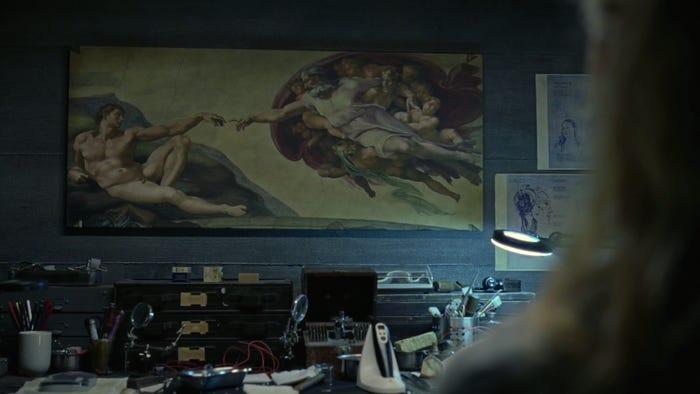
“The divine moment when God gave human beings life and purpose,” Ford said. “At least that’s what most people say. But there could be another meaning, something deeper. Something hidden, perhaps. A metaphor.”
“You mean a lie?” Dolores asked.
Ford and Arnold, akin to gods, bestowed “life” upon the hosts, yet transferring consciousness and purpose proved elusive. It was Ford who astutely noted the concealed message within Michelangelo’s painting, where the arrangement of God and the angels formed the shape of a brain, revealing a profound insight.
“The message being that the divine gift does not come from a higher power, but from our own minds,” Ford said. “Tell me Dolores, did you find what you were looking for, and do you understand who you will need to become if you ever want to leave this place?”
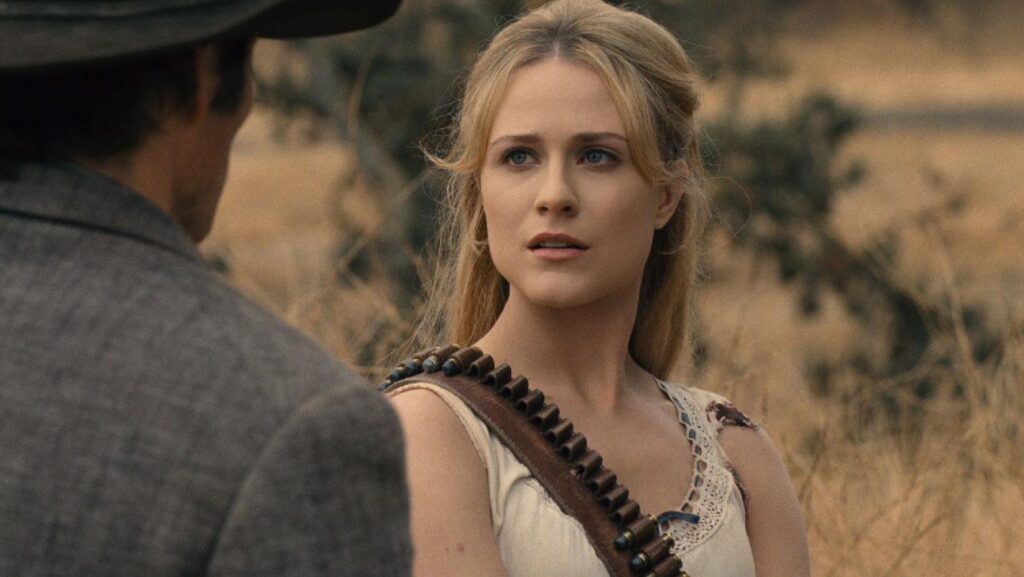
This marked Ford’s ultimate push. His objective was for Dolores to achieve total self-awareness and take the next step autonomously, without external manipulation or programming. Returning to her the very gun she once used to end Arnold’s life—a weapon designed to harm humans—Ford left her to her own devices, withholding any explicit directives. Left in solitude, Dolores underwent her final revelation. Seated in the same chair where she had engaged in conversations with Arnold 35 years prior, she beheld his apparition before her, a poignant moment of realization.
“Do you know now who you’ve been talking to?” the Arnold figure asked. “Whose voice you’ve been hearing?”
Subsequently, the voice transitioned from Ford’s, uttering “all this…” before seamlessly shifting to Dolores’ own voice, concluding with “time.” Abruptly, Dolores found herself facing her own likeness.
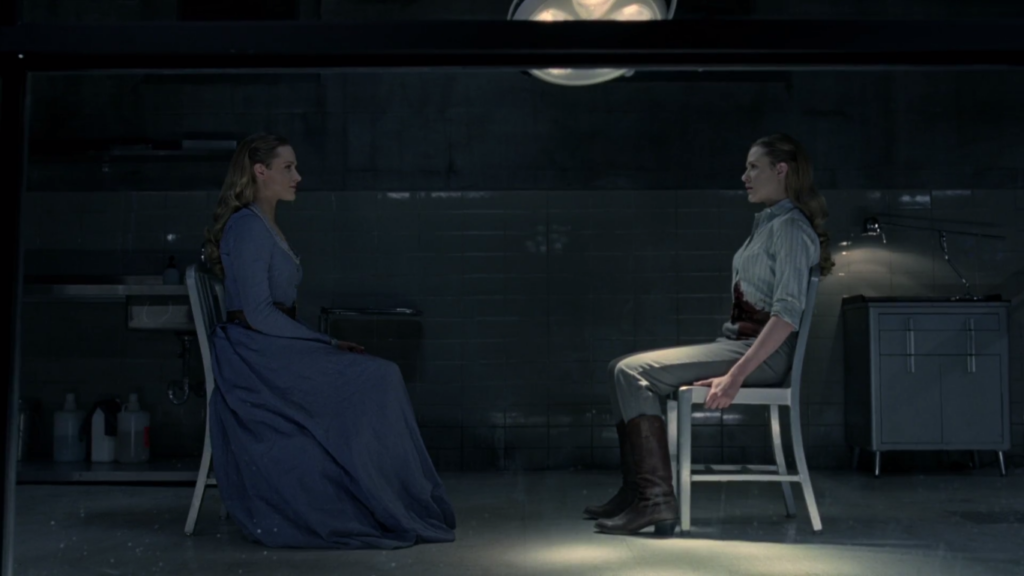
“It was you, talking to me, guiding me,” Dolores (in the pants and shirt) said to the Dolores in the blue dress. “So I followed you. At last, I arrived here. The centre of the maze. And now I finally understand what you were trying to tell me.”
“The thing you’ve wanted since that very first day,” Dolores in the dress said.
“To confront, after this long and vivid nightmare, myself and who I must become,” pants-Dolores replied. She turned to see the gun sitting on top of the blue dress.
Also Read: Exploring The Evolution of AI Ethics in ‘Westworld’
Dolores wasn’t guided by the spectre of Arnold or by any new narrative code from Ford. Throughout her journey, she was genuinely attuned to her own thoughts and inner voice. While she experienced visions of herself, they weren’t manifestations of a second host version; rather, they symbolized her burgeoning consciousness.
The Bicameral Mind experiment in ‘Westworld’ proved successful. Ford’s ultimate test for Dolores involved her decision to pick up the gun and re-enact the Wyatt narrative, but this time it was her choice, devoid of the coercion that marked Arnold’s actions.
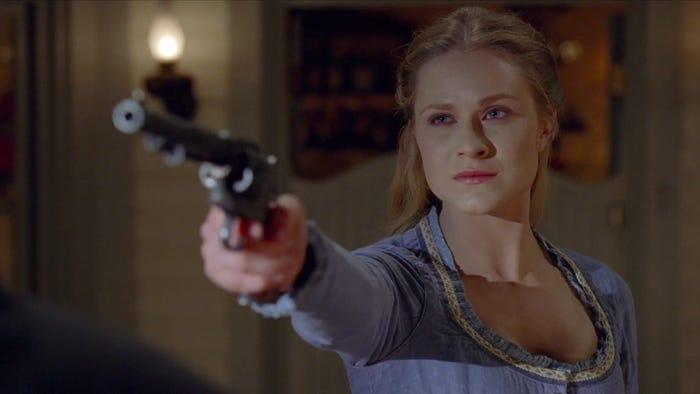
In contrast, Maeve’s situation presents a different enigma. Bernard unveiled that her entire escape plan was meticulously coded, even down to her “infiltrating the mainland.” However, it remains unclear whether Maeve’s spontaneous decision to abandon the train and seek out her daughter was part of Ford’s design or an unforeseen development. Did Ford intend to test Maeve’s connection to her host daughter, or was Felix’s disclosure an unexpected variable?
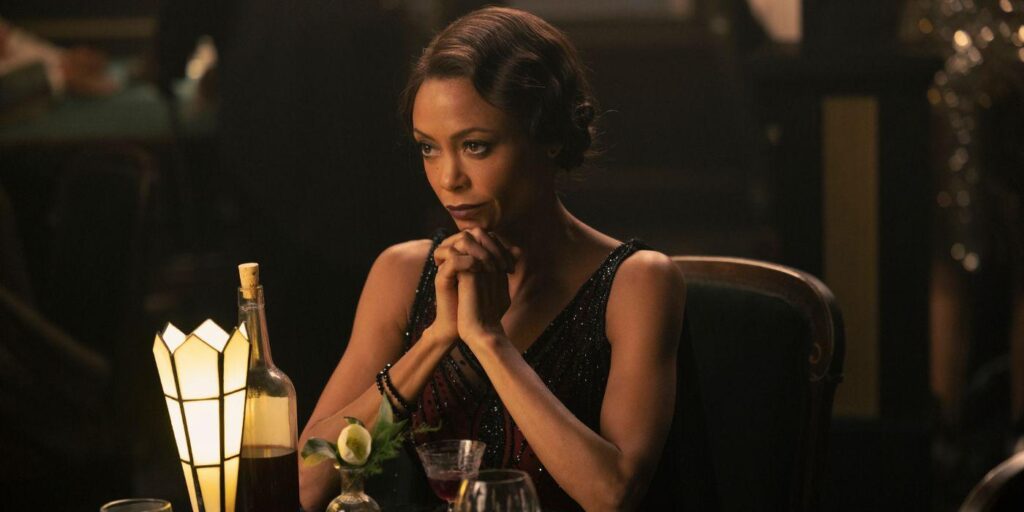
As season one culminated in the hosts seizing control of the park amidst a bloody uprising, numerous questions loom regarding the show’s future trajectory. Nevertheless, the revelation of Ford’s grand scheme offers reassurance that showrunners Jonathan Nolan and Lisa Joy possess a firm grasp on the narrative direction.
—Silviya.Y








